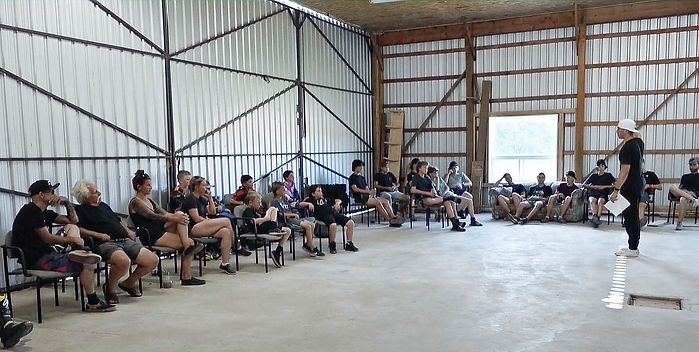Team Consulting

Mental fitness in a team or club setting embodies not only the individual components of the roster, but integrating and empowering a movement in dynamic culture. It’s a structured process aimed at enhancing the collective mental resilience, performance, and well-being of the group.
The Process for Integrating a Program
1. Initial Assessment:
An initial assessment to understand the team's dynamics, goals, and challenges.
Individual interviews with team members may be conducted to gather insights into their mental states, strengths, and areas for improvement.
2. Team Workshop or Seminar:
A workshop or seminar is organized to introduce mental conditioning concepts and their relevance to team dynamics.
Key principles are introduced such as goal setting, visualization, positive self-talk, and stress management to name a few. Based on these outcomes …This leads to customized Mental Training Plans:
These plans may include individual and group exercises to address specific areas identified during the assessment.
3. Regular Group Sessions:
The team engages in regular group sessions led by the mental conditioning coach. IN PERSON
Sessions may cover topics like team communication, building a positive team culture, and strategies for handling pressure situations.
4. Individual Coaching Sessions:
Team members may have one-on-one coaching sessions to address personal mental challenges and goals.
This allows for personalized attention and support tailored to each individual's needs.
5. Integration with Physical Training:
Mental conditioning is seamlessly integrated with physical training routines to reinforce the mind-body connection.
What is Sport Psychology?
The scientific study of people and their behaviours in sport/exercise activities and the practical application of that knowledge. Simply put.
Cause and Effect Principle:
Specifically the effects of Psychological Factors on physical or motor performance. “What happened? You trained so hard?” A: my head just wasn’t in it.” Sound familiar?
I’m talking about the anxiety’s effecting accuracy of a shot, efficiency of performance, ultimately a persons flow state. Thus, effecting self-confidence, in some cases team-cohesion. How does imagery and visualization facilitate recovery, performance, or rehab in injured athletes?
Learn the various methodologies and tools of psychological skills training to avoid mental collapse in peak moments.
6. Progress Evaluation:
Regular assessments and feedback sessions are conducted to evaluate the team's progress.
Adjustments to the mental training plans are made based on the team's evolving needs and achievements.
7. Performance Analysis and Reflection:
Just like any of your other coaches, this synergy is synced with your team members, and culture. This is how we fill the gaps. The coaches (head coach, S&C coach, mental coach) works with the team to analyze performance, identifying areas of success and areas for improvement.
Reflective exercises help team members understand the impact of their mental conditioning on their overall performance. Just like watching game tape.
8. Ongoing Support:
With ongoing support, and ensuring that the team continues to apply and refine mental skills in their daily practices – I am in your corner. On the go consultations are normal to address emerging challenges or opportunities.
Celebrating Success:
Sorry, but I’m an optimistic neutral thinker (and you will be too), I celebrate little wins… often!
Successes, both individual and collective, are celebrated to reinforce positive behaviors and achievements.
Want to see how your team or roster can benefit from mental fitness training?
Clients Say

Keynote SPeaking


So you have a team, a group of students, or both .. what are they needing outside of what you already offer? A mental edge. Someone, an educator in sport performance, career performance … a mental conditioning coach. In some cases, we spend a ton of time developing teams physical abilities, though is that emphasise used on the TEAM’s dynamic? In other cases, we spend so much time teaching students on discipline and why school is important, but have they uncovered that spark that keeps them excited and empowered to enjoy the process for themselves? Where they can earn a sense of pride? In many cases nonetheless, we are not taught on how to THINK.
Most of our programming stems from our beliefs that we inherently didn’t choose. We may agree with some of them and found a way to make them work for us, though the common question people have a hard time answering with absolute certainty is knowing who they are. Who are you?
Here are some insights for individuals looking for that career path, that purpose, that athlete looking for mental resiliency to out perform the next guy … or individuals on team sports being able to integrate with every player and be a valuable component to the name or country you represent:
-
There is a success (and failure) cycle that is universal to the world.
-
In life and sport, we have “emotional homes” that either serve or hinder us.
-
To grow and learn, to become more fulfilled as people, we have to evolve.
-
There are 2 Mastery Skills that bring you confidence and enjoyment in life and
#1 is The Science of Achievement, and #2 The Art of Fulfillment. -
Changing your “state” is the most valuable skill to master (no more victim mentality).
-
Owning what is real, not what you are afraid of. Learning to dance with fear instead of resisting it.
-
The power of neutral thinking. This is one element of an elite mindset.
-
Finding a passionate energy to harness and develop will create motivation
-
The science of momentum.
-
Our values determine our direction, and our belief determine our rules.
-
“Learning” is the process of creating a relationship between the known and the unknown. This is also known as neuro-associative change.
I want to empower, educate your group. My job is to make you look good that you hired the right speaker.



